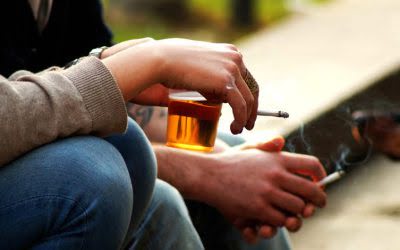It causes a disconnection between your mind, body, and spirit, which may leave you feeling more in pain than before. One aspect of the research the author has conducted with the support of NIAAA, and which is the topic of this article, has focused on identifying the physiological and neural effects, as well as the subjective and cognitive effects, of binge and chronic alcohol use. This research also has explored the factors that influence these effects and investigated whether these effects can be reversed or normalized to allow for recovery from any of the long-term changes that occur with binge and chronic alcohol misuse.
Disorders
These differences have been specified when reporting results in this text; however, attention should be given to the clinical differences between abuse, dependence and disorder when interpreting the findings presented in this review. Men and women who report higher levels of stress also are more likely to drink more. Those who turn to alcohol as a coping mechanism may lack adaptive coping skills that usually help us work through the challenges instead of masking them. Sometimes when people are cut off from other healthy mechanisms like going to the gym, they can also turn to unhealthy coping mechanisms like drinking. The current study seeks to examine how different facets of mental health relate to DWS and DTC. Analyses use archival data from a 22-day longitudinal study conducted during May–August of 2020, a year marked by record levels of stress, worry, sadness, and anger worldwide 19.
- Research has found that people who have a positive, optimistic outlook and have good problem-solving and coping skills tend to deal with stress effectively.
- Alcohol is sometimes used by people to try and help manage symptoms of anxiety and depression, but excessive drinking is likely to make those symptoms worse.
- Much of the evidence supporting coping motives as mediators of the path from depression to alcohol-related problems has come from cross-sectional studies, that are limited in their ability to provide strong tests of mediation (e.g., Catanzaro & Laurent, 2004, Gonzalez et al., 2009; Blevins et al., 2016).
- But what if you start relying on alcohol as a coping mechanism or an emotional release?
- Current evidence concerning the relationship between resilience and various alcohol-related phenotypes, including AUD, is then examined.
Gender Differences
Findings should be also replicated in larger samples with a more equal ratio of males/females and more diverse samples, including a better representation of low-income/education individuals. Our measures focused https://test.softdomi.com/2020/11/02/alcohol-induced-anxiety-symptoms-causes-and/ on self-reported and retrospective measures, which might have induced biases. Additionally, the cross-sectional nature of the current study limits causative interpretations. Even when participants reported pre-pandemic consumption, the lack of a pre-COVID-19 measure is of notable relevance when interpreting the associations observed in the current study.
2. Participants

Evidence suggests good reliability between telephone and face-to-face diagnostic interviews marijuana addiction (Briere et al., 2014). Long hours in the office or on the job site leave men feeling depleted and exhausted. Financial responsibilities to keep the bills paid so their families have a place to live only add to this. Work-related stress is a significant portion of the pressure and stress that men deal with.

The present and ongoing study aims to fill this research gap by conducting an experimental laboratory design to investigate the underlying mechanisms of the association between stress and alcohol consumption (MESA) in the at-risk population of young men. Since these mechanisms are expected to differ depending on the stage of alcohol use, they are examined in regular and risky drinkers. Therefore, several processes that could mediate the relation between stress and alcohol consumption at different stages of alcohol use progression are assessed. People who exhibit impulsivity, novelty seeking, negative emotions, and anxiety—traits also linked to an increased risk for substance use disorders—have difficulty dealing with stress. Determining how much minority-related stress is linked to increased alcohol consumption alcohol as a coping mechanism has been difficult for researchers to determine due to other risk factors among minority groups—such as drinking patterns and differences in alcohol metabolism. Unfortunately, alcohol is a coping mechanism the temporary benefits of which are often outweighed by the long-term negative effects on health and relationships, poor decision-making under the influence, as well as increased dependency.

Alcohol Abuse and Addiction Treatment
Rather than simply resolving to “stop drinking,” which removes one coping skill without replacing it with another, it is important to have other skills in place. After all, you were drinking for a reason, so it’s important to address that reason and find other ways to meet the need it filled. Coping mechanisms help in managing mental health disorders such as depression, anxiety, and post-traumatic stress disorder (PTSD) by equipping people with skills to handle stressors and emotional challenges, which ultimately influence their mental health outcomes. Substance recovery programs use healthy coping strategies such as behavioral therapies to help individuals replace maladaptive behaviors with healthier alternatives.